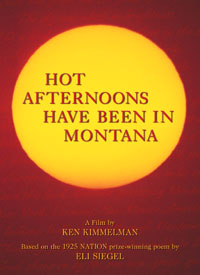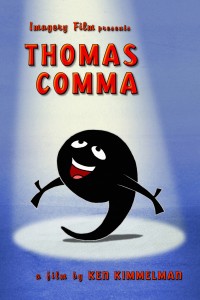FILM PRESENTATIONS for Adults & Young People
By Ken Kimmelman, Emmy Award-winning filmmaker
Film—& ‘The Art of Enjoying Justice’!
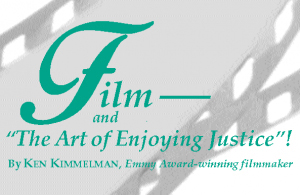 “A high point of our program. All the essentials—crafts, aesthetics, story, & the creative process. I noticed a new energy and focus in the students after it.”—Richard Breyer, Co-Director of Documentary Film, Syracuse University
“A high point of our program. All the essentials—crafts, aesthetics, story, & the creative process. I noticed a new energy and focus in the students after it.”—Richard Breyer, Co-Director of Documentary Film, Syracuse University
In this presentation for audiences—from film students to seniors—Ken Kimmelman speaks on and shows 5 of his short award-winning films, including Hot Afternoons Have Been in Montana, and Thomas Comma. He says, “I learned that all art, in its purpose and technique, is ethical. Art has in it the way of seeing we need in our everyday lives. Eli Siegel defined ethics a ‘the art of enjoying justice.'” [Films]
Hot Afternooons Have Been in Montana
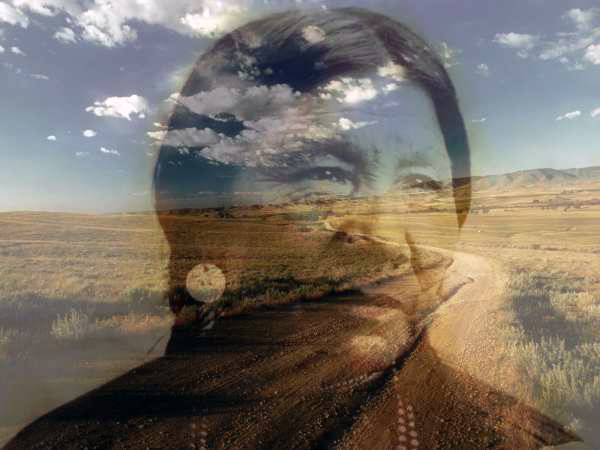 “Ken Kimmelman’s reproduction, on film, of Eli Siegel’s magisterial poem, is an extraordinary achievement.”
“Ken Kimmelman’s reproduction, on film, of Eli Siegel’s magisterial poem, is an extraordinary achievement.”
—Howard Zinn, historian
“The film helps make poetry more accessible to today’s young viewer….A lovely short film for audiences from young adult and up.”
—Library Journal
The film, winner of numerous awards, takes us on a wonderful journey, showing how a hot afternoon in Montana is related to the whole world–past and present. Mr. Kimmelman gives talks about the important meaning of the film at schools, universities, libraries, and film festivals. [Film] [Brochure]
Thomas Comma
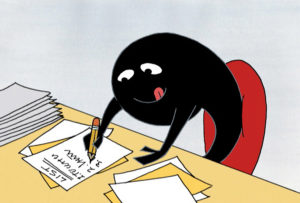 “Thomas Comma is one of those rare delights, a film that both entertains and educates. It’s a gem.” —Dan Bennett, Festival Director, Los Angeles Int’l Children’s Film Festival
“Thomas Comma is one of those rare delights, a film that both entertains and educates. It’s a gem.” —Dan Bennett, Festival Director, Los Angeles Int’l Children’s Film Festival
“This is as much a film for older viewers familiar with literature as it is for younger viewers who can benefit from its life-affirming lessons on confidence and perseverance.”—Library Journal
Thomas Comma [24 min.], an award-winning film based on a story by poet Martha Baird, is the charming, humorous, and sophisticated adventure of a lonely comma looking for the right sentence—what truly represents him in the world. “We’re all of us like commas,” wrote Ms. Baird, “looking for the right sentence.” Ken Kimmelman gives an exciting talk on the making of the film and its meaning and shows the film.
Can Contempt Be Animated?
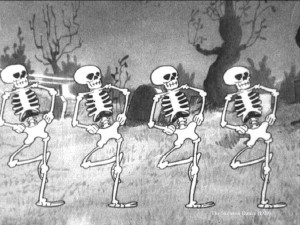 “Since Gertie the Dinosaur defiantly turned her back to the audiences in 1909, film animation artists have been interested in animating the contempt all people have for the world, as an unconscious means of fighting contempt.”
“Since Gertie the Dinosaur defiantly turned her back to the audiences in 1909, film animation artists have been interested in animating the contempt all people have for the world, as an unconscious means of fighting contempt.”
—Ken Kimmelman
Recipient of an Emmy Award for his contributions to Sesame Street, Mr. Kimmelman speaks about the ethics of animation and shows animated films, including Disneys’ 1929 Skeleton Dance and the Sorcer’s Apprentice from Fantasia.
Bullying Can End!—Aesthetic Realism Explains the Cause & the Solution
 “Mr. Kimmelman’s presentation is essential to any school or district trying to stamp out bullying and inculcate the culture of kindness.” —Model Schools Coordinator
“Mr. Kimmelman’s presentation is essential to any school or district trying to stamp out bullying and inculcate the culture of kindness.” —Model Schools Coordinator
In this interactive presentation Ken Kimmelman speaks about & shows 3 of his short award-winning social justice films. He says: “I’ve learned the cause of all injustice—including bullying—is contempt: ‘the addition to self through the lessening of something else.’ When contempt is understood and criticized, bullying can end and change to respect and kindness.”
Aesthetic Realism & the Literary Cinema of Ken Kimmelman
The filmmaker shows & speaks about the relation of art and ethics in his films of two literary masterpieces: Hot Afternoons Have Been in Montana, based on the esteemed 1925 Nation prize poem by Eli Siegel, read by its author; and Thomas Comma, based on a story by poet Martha Baird. [Films]
